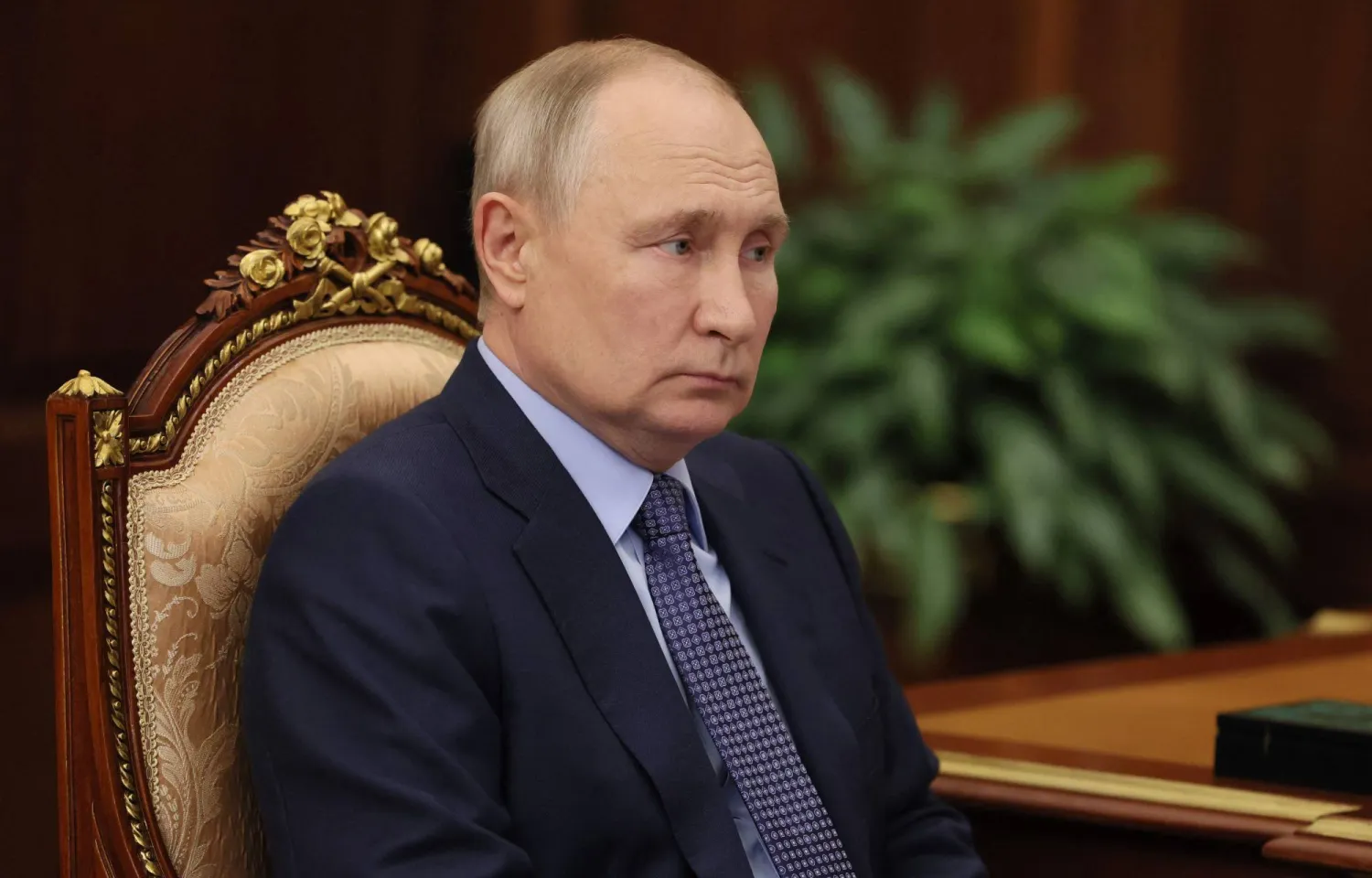Vladimir Putin will visit Kyrgyzstan on Thursday, the presidential office of the Central Asian country said, in what would be the Russian leader's first known trip abroad since the International Criminal Court issued a warrant for his arrest.
Putin has rarely traveled abroad since the start of Moscow's invasion of Ukraine in early 2022 and is not known to have left Russia since the ICC issued in March a warrant for him on suspicion of illegally deporting hundreds of children from Ukraine. The Kremlin denies those allegations, Reuters said.
"At the invitation of the President of the Kyrgyz Republic, Sadyr Japarov, on October 12 of this year, the President of the Russian Federation, Vladimir Putin, will make an official visit to the country," the Kyrgyz presidential administration said in a statement on its website.
Putin agreed in May during talks with Japarov to visit Kyrgyzstan, but there has been no official confirmation yet from the Kremlin that the Russian president will travel there on Thursday.
The Russian leader is also due to travel to China next week for the third Belt and Road Forum in Beijing. Neither Kyrgyzstan nor China are members of the ICC, which was established to prosecute war crimes.
Moscow denies the ICC allegations and the Kremlin said the warrant was evidence of the West's hostility to Russia, which opened a criminal case against the ICC prosecutor and the judges who issued the warrant.
CIS SUMMIT
In Kyrgyzstan, Putin is also to take part in ceremonies dedicated to the 20th anniversary of the opening of an air base in Kant, which is home to the Russian Aerospace Forces' 999th Air Base, the Kyrgyz presidential office said.
Separately, Kyrgyzstan's presidential office said on Tuesday that the Prime Minister of Armenia Nikol Pashinyan told Japarov that he will not be attending a Commonwealth of Independent States (CIS) summit in Bishkek on Friday.
The office said that Pashinyan told Japarov in a phone call that he will not be able to attend due to "a number of circumstances."
The CIS was formed among a number of the post-Soviet republics after the fall of the Soviet Union in 1991 and includes Russia, Armenia, Azerbaijan and Kyrgyzstan, among others.
Japarov's office said Putin planned to attend the summit.
Russia-Armenia ties have been badly strained by Moscow's invasion of Ukraine and Armenia moving to subject itself to the jurisdiction of the ICC.
Armenia has also accused Russia of inaction as Armenia's neighbor Azerbaijan recaptured last month Nagorno-Karabakh, a region controlled for three decades by ethnic Armenians, most of whom have now fled.
Last week, Azerbaijan's President Ilham Aliyev pulled out of an EU-brokered meeting with Pashinyan at which Brussels said it was standing by Armenia.
Pashinyan said on Tuesday that plans were proceeding for a meeting with the Azeri president to discuss a durable peace accord.
Putin to Travel to Kyrgyzstan in First Known Trip abroad since ICC Arrest Warrant

This pool photograph distributed by Russian state owned agency Sputnik shows Russian President Vladimir Putin attending a meeting with Culture Minister at the Kremlin in Moscow on October 9, 2023. (Photo by Mikhail METZEL / POOL / AFP)

Putin to Travel to Kyrgyzstan in First Known Trip abroad since ICC Arrest Warrant

This pool photograph distributed by Russian state owned agency Sputnik shows Russian President Vladimir Putin attending a meeting with Culture Minister at the Kremlin in Moscow on October 9, 2023. (Photo by Mikhail METZEL / POOL / AFP)
لم تشترك بعد
انشئ حساباً خاصاً بك لتحصل على أخبار مخصصة لك ولتتمتع بخاصية حفظ المقالات وتتلقى نشراتنا البريدية المتنوعة







